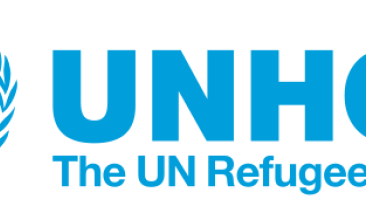The 1976 Immigration Act, which came into effect in 1978, was the first immigration act that clearly defined the fundamental objectives of Canadian immigration policy. It defined refugees as a distinct class of immigrants and required a mandatory responsibility on the government to plan for the future of immigration. The private sponsorship was quickly used in 1979 to sponsor Vietnamese, Cambodian, and Laotian refugees. It received renewed attention following the November 2015 implementation of the “Operation Syrian Refugees”. But who is eligible to be a private sponsor?
Sponsorship Agreement Holders (SAHs)
Numerous organizations signed sponsorship agreements with the Canadian Government to help support overseas refugees when they resettle in Canada. These organizations are called Sponsorship Agreement Holders (SAHs). They can either sponsor refugees themselves or collaborate with others in the community to sponsor refugees. The majority of SAHs are religious, ethnic, community, or humanitarian organizations. Organizations that enter a sponsorship agreement with Immigration, Refugees and Citizenship Canada (IRCC) generally submit several refugee sponsorships throughout the year.
An organization may be eligible to apply to become a SAH if it is:
- A legally created organization
- Physically located in Canada
- Approved by IRCC as a SAH before applying for sponsorship
Resettlement Operations Centre in Ottawa (ROC-O) evaluates the contribution of each group member to the sponsorship. The financial and non-financial aspects are examined collectively, as well as the settlement plan (only for SAHs who have less than two years of experience in the private sponsorship of refugees), before the sponsorship is approved.
Groups of Five
A group of five (G5) is five or more Canadian citizens or permanent residents who made arrangements to sponsor a refugee who is living abroad to come to Canada. A Group of Five can only sponsor an applicant who has already been granted refugee status.
To be eligible, each member of the group must:
- Be a Canadian citizen or a permanent resident
- Be at least 18 years old
- Live in the same community where the refugee is expected to settle
- Agree to give settlement support for the length of the sponsorship
Once they meet all these criteria, the Resettlement Operations Centre in Ottawa (ROC-O) will evaluate the contribution of each member of the group to the sponsorship. The financial and non-financial aspect will be examined collectively, as well as the settlement plan, before the sponsorship is approved. The group’s financial commitment must meet the levels established in the Sponsorship Cost Table.
Constituent Groups
A SAH can allow Constituent Groups to sponsor under its agreement and provide support to refugees. This is done when a SAH partners with an individual or another organization. Each SAH sets its own benchmark for recognizing CGs. CGs must be in the sponsored refugees’ expected community of settlement and must have their sponsorship application and settlement plan approved and signed by their SAH before going ahead with the submission of the application to ROC-O.
Community Sponsors (CS)
A Community Sponsor is an organization, association or corporation who sponsors refugees to come to Canada. They are located in the community where the refugees are expected to settle. They can only sponsor people who have already been formally recognized as refugees. Consequently, they have to submit proof that each applicant has been recognized as a refugee. Like any other private sponsorship stream, community sponsors go through a financial and a settlement plan which will be assessed by ROC-O.

